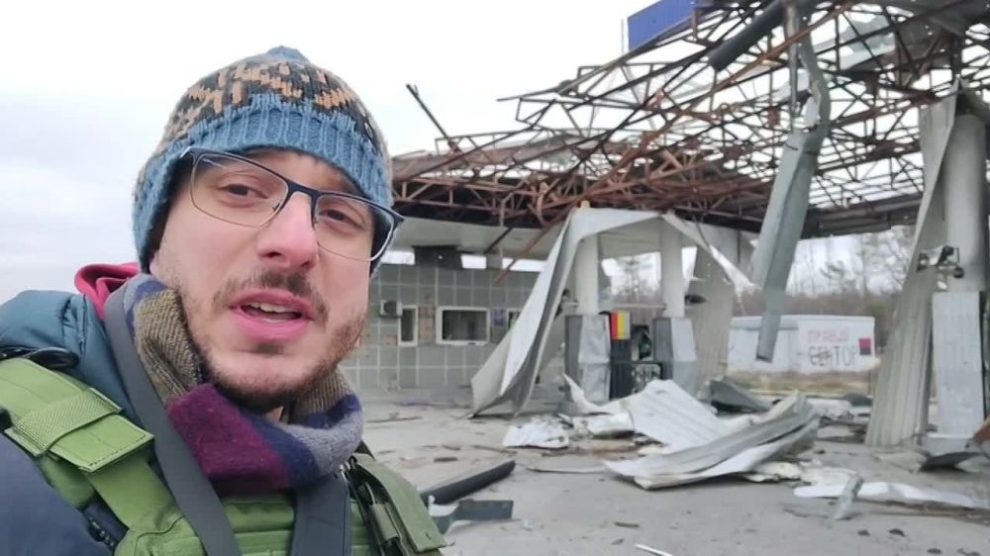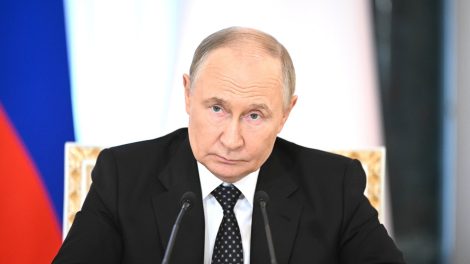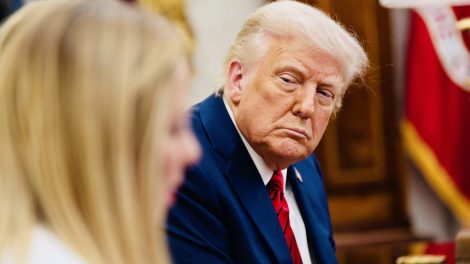Andrea Lucidi was at Villa Berg. The “journalist” that’s among the most prolific Italian-language diffusers of pro-Kremlin propaganda appeared at the Italian Embassy in Moscow on October 11. When questioned in Parliament about the matter, Deputy Foreign Minister Edmondo Cirielli remarked that it “seems paradoxical and deserves further investigation.”
A brief profile. The self-identified “independent journalist” has been reporting from the Donbas region of Ukraine on a mission to counter “Western mystifications from the field” – all while wearing a uniform with the Russian “Z” symbol and never steering far from the Kremlin’s official line. He has been pumping out the Russian propaganda’s greatest hits, calling out the Ukrainian “Nazi regime,” labelling the Bucha massacre as fake news, touting Moscow’s efforts to rebuild the sieged city of Mariupol, calling the deportation of Ukrainian children “safety evacuations” and so on.
- On February 24, 2022, when Russia’s full-scale invasion of Ukraine began, Mr Lucidi reacted like this when Giorgia Meloni, then head of the opposition and now Italian prime minister, condemned Russian President Vladimir Putin: “You and all the supporters of the Ukrainian regime deserve the guillotine.”
- After attending the event, he posted a (now deleted) picture of himself and Ambassador Giorgio Starace to X thanking him for the “beautiful evening.”
What event was that? The initiative, which Deputy Minister Cirielli called “anomalous, to say the least,” took place on October 11. The Italian Embassy in Moscow had offered its for an initiative organised by the Community of Saints Francis of Assisi and Catherine of Siena, “a point of reference for Italian Catholics in Moscow.”
- The event was entirely funded by “voluntary contributions of Italian companies and restaurants and without any cost to the Treasury.” It aimed to “collect donations for the renovation of a building that will be used as a parish house, and also as an assistance centre for the destitute,” noted the government official.
- A 5,900 ruble ticket was required to enter, and the money paid was “directly credited to the association’s bank account,” he continued, stressing that Mr Lucidi had merely bought it and was never formally invited by the Embassy.
What about the screening process? The Italian Embassy surveyed the list of donors, aiming to exclude people and representatives of entities sanctioned by the European Union, as well as guests with pending indictments. “This filter made it possible to exclude some names from the list of participants,” explained Deputy Minister Cirielli, but it did not help to identify Mr Lucidi as he did not fall into these categories and was not known to the embassy staff or Ambassador Starace.
- “At least that is what the interested parties claim,” he added, noting that at any rate, the relevant human resources and innovation divisions of the Italian Ministry of Foreign Affairs have been informed of the affair.
The opposition’s response. Lia Quartapelle, the Democratic Party MP who tabled the question, appreciated the deputy minister’s response and the “serious consideration” he treated the matter with – especially the organisational methods chosen by the Italian Embassy in Moscow to hold the event, according to the minutes.
- The Foreign Affairs Ministry seemed to share her concern about the participation of people who contribute to the spread of Russian propaganda and disinformation.
- She then invited the Italian Embassy in Moscow to exercise stricter control over those participating in the events to preserve Italy’s prestige and security.




